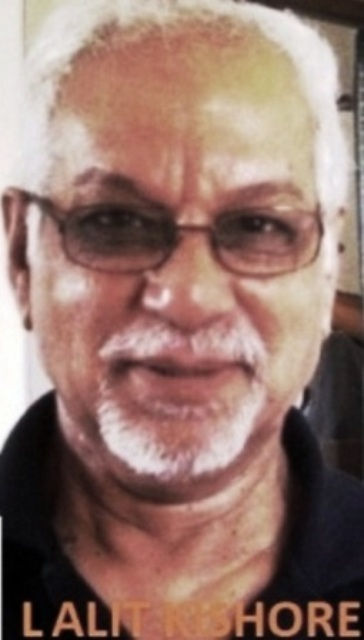Understanding intended paradigm shift towards inclusion pedagogy in India
- Lalit Kishore
- Jan 15, 2021
- 2 min read

Here, the contribution of Jaipur based educator, Dr Lalit KIshore, earlier published in Merinews[1] (Date24 November, 2016) portal is reproduced. His interviews, on other occasions have also been published on YouTube [2] [3] on various aspects of inclusive education.
Inclusive education: An interview
An interview was conducted by Dr. Savita - a clinical psychologist at Jaipur-based Disha NGO - on inclusive education, a topical issue which is being debated due to emphasis on child rights and right to education. Dr. Lalit Kishore, this citizen journalist and educational freelancer was the interviewee.
Dr. Savita: These days, people are talking about inclusive education and well meaning educators are advocating for it. I would like to know what is inclusive education all about? Lalit Kishore: Inclusive education pertains to educating all children, irrespective of their disability, caste, gender, social status and learning styles in the same classroom. The basic premise is that all can learn but learning paces and styles of learning of diverse children vary from child to child. It is a combination of access of education to all; acceptance of diversity and accommodating every child in the learning process by addressing their diversity.
Dr. Savita: How has the paradigm shift from exclusive general education to inclusive education evolved?
Lalit Kishore: When the society started institutionalized education, the children with impairments were hidden and stigmatised in public spaces, education was accessible only to those who were normal. The exclusion and discrimination in education got accepted since dominant societal group created layers of screening children by valuing similarity, uniformity and competition which was unfair and with different staring points. Then came the times when two types of schools started-separate schools for general education and another set of schools for special education. Thereafter the concepts of 'mainstreaming' and 'integration' were talked about and experimented. Due to research and advancement of education as a discipline as well as child rights activism, currently, inclusive education is being talked right from teacher level to the policy framers
Dr. Savita: How to make a beginning towards inclusive education?
Lalit Kishore: In some countries, through community-based neighbourhood school system, the school managements consisting mainly of parents have made the child level educational planning (micro-planning) and have become the support systems for learning of diverse children. Even some committed groups have demonstrated the success of inclusive education by implementing differentiated learning techniques. How to scale up the successful practice is a matter of committed school management and child-level educational planning and execution by involving schools and homes as equal stakeholders in the education of every child.
Dr. Savita: Even in a general education classroom and teacher education institutions, children are diverse but 'one-size-fit-all' style of teaching is being followed. What do you say of that?
Lalit Kishore: This is unfortunate that despite the Right to Education (RTE) Act, the factory and screened- access model of education is being followed. The teacher education needs to be reformed since their classroom instruction is also based on rote learning and cracking the examination to pick up the degree and perpetuate the discrimination in education. Teacher education has become rotten and we must begin from there. Only a teacher who is prepared for inclusive education and appropriate attitudes can work well for inclusive education.
[1] http://www.merinews.com/mobile/article/Interviews/2016/11/24/inclusive-education-an-interview/15921128




Comments